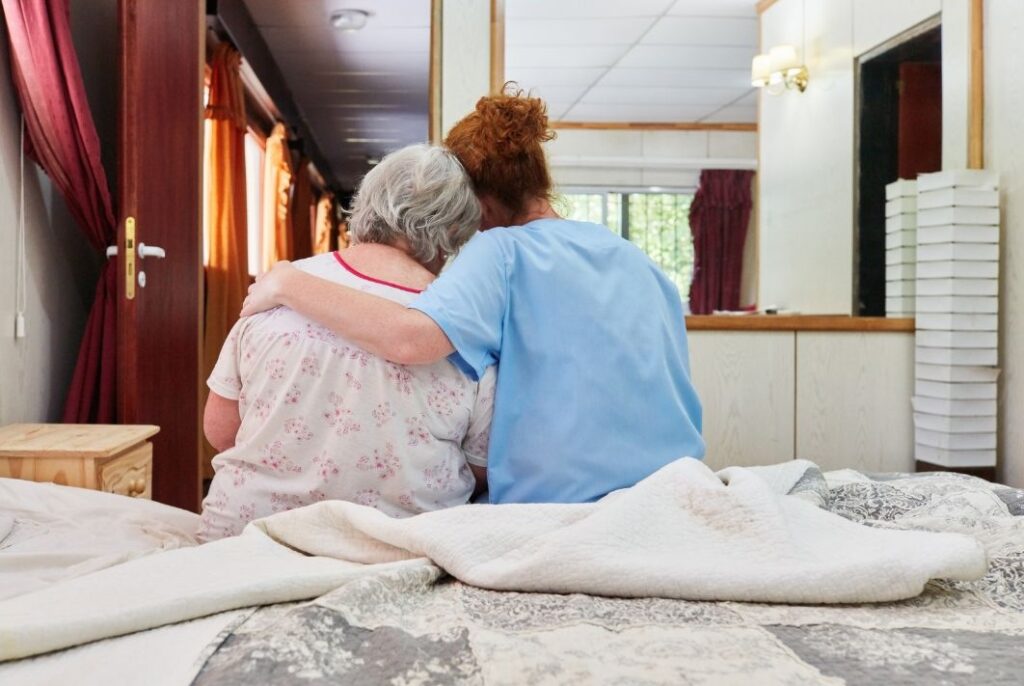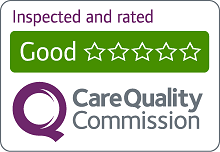There are often misconceptions about palliative care that often overshadow the invaluable support it provides to patients and their families.
By debunking these myths about palliative care, we aim to shed light on the true essence of palliative care and its multifaceted benefits.
Palliative care myths can dissuade individuals from seeking the compassionate care they deserve.
This article hopes to guide palliative carers and family members through any misinformation to provide some clarity and help with informed decision-making.
Myth 1: Palliative Care and Hospice Care are the Same

Palliative care and hospice care, although intertwined in their focus on comfort and quality of life, diverge significantly in their scope and timing.
Palliative care can begin at any stage of an illness, offering symptom management, emotional support, and care coordination to improve life quality.
In contrast, hospice care is typically reserved for those with a prognosis of six months or less, emphasising end-of-life care.
By understanding these key differences, patients can access tailored support when needed most.
Myth 2: Palliative Care Makes Death Occur Sooner
Contrary to the belief that palliative care hastens death, it more often enhances the comfort and quality of life for patients going forward.
Research shows that patients receiving palliative care often experience not only better symptom management but also longer survival rates.
Stories from patients and families underscore the vital impact of palliative care, highlighting its role in fostering a dignified and peaceful life.
Myth 3: This is Only for People Dying of Cancer
Palliative care extends its compassionate embrace beyond cancer, offering assistance to individuals grappling with any serious illness, such as heart failure, COPD, and dementia.
Its holistic approach caters to the physical, emotional, and spiritual needs of patients, reflecting the diversity of those it serves.
This inclusivity underscores palliative care’s commitment to enhancing the lives of all patients in need.
Myth 4: Only the Patient Can Benefit from Palliative Care

Palliative care adopts a holistic approach, enveloping not only the patient but also their family members and live-in carers in a cocoon of support.
Emotional counselling, respite care, and assistance with care planning are among the ways families benefit, underscoring the communal nature of palliative care and its recognition of the carer’s experience.
Furthermore, it fosters a supportive environment where communication and understanding flourish, enabling families to navigate the complexities of care with confidence and compassion.
Myth 5: Palliative Care Means My Doctor Has Given Up on Me
The initiation of palliative care is not classed as an emergency treatment but a testament to the medical community’s commitment to patient-centred care.
It complements curative treatments, ensuring that care is aligned with the patient’s goals and values.
Discussing palliative care with healthcare providers opens a dialogue about enhancing well-being throughout the illness period.
Myth 6: Palliative Care is Only for Pain
Palliative care is a step above pain management to address a broad array of needs, including symptom control, emotional support, and decision-making assistance.
Teams work together to create individual care plans that meet the unique needs of each patient. This approach represents realistic compassionate and comprehensive care.
Myth 7: Palliative Care is Very Expensive

Misconceptions about the cost of palliative care often deter individuals from exploring this option.
However, its role in preventing unnecessary hospital readmissions and reducing overall healthcare utilisation makes it a cost-effective choice.
Costs should always be considered, and at IP Live-in Care, we can discuss these with you for clarity and peace of mind in a respectful manner.
Myth 8: Palliative Care is Only Provided in a Hospital
Palliative care is not just limited to hospitals anymore. It has expanded to various settings like homes, clinics, and long-term care facilities.
This change allows patients to choose where they can receive care.
They can stay in the comfort of their homes with their family while getting professional and compassionate support that suits their specific needs.
Palliative care providers are dedicated to meeting patients and their families wherever they are in the process by creating personalised care plans, which help improve their quality of life.
Myth 9: Taking Pain Medication in Palliative Care Leads to Addiction
The fear of addiction should not overshadow the need for adequate pain management in palliative care.
Embracing the truths about palliative care paves the way for a more compassionate, informed approach to illness and end-of-life care.
Distinguishing between physical dependence and addiction is crucial, with healthcare professionals meticulously balancing medication to manage pain effectively without compromising safety or quality of life.
For further information or to discuss palliative care options, contact us today to understand and get a clearer way forward for your loved ones if faced with these circumstances.
